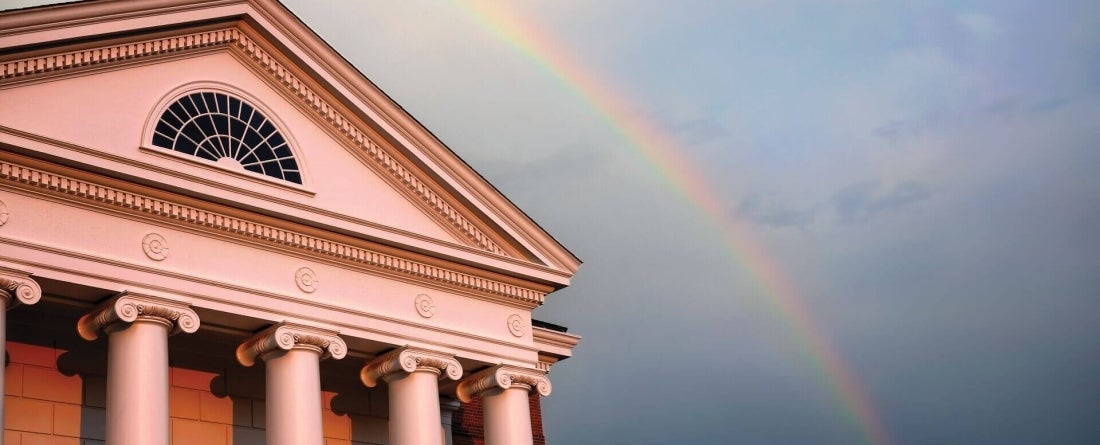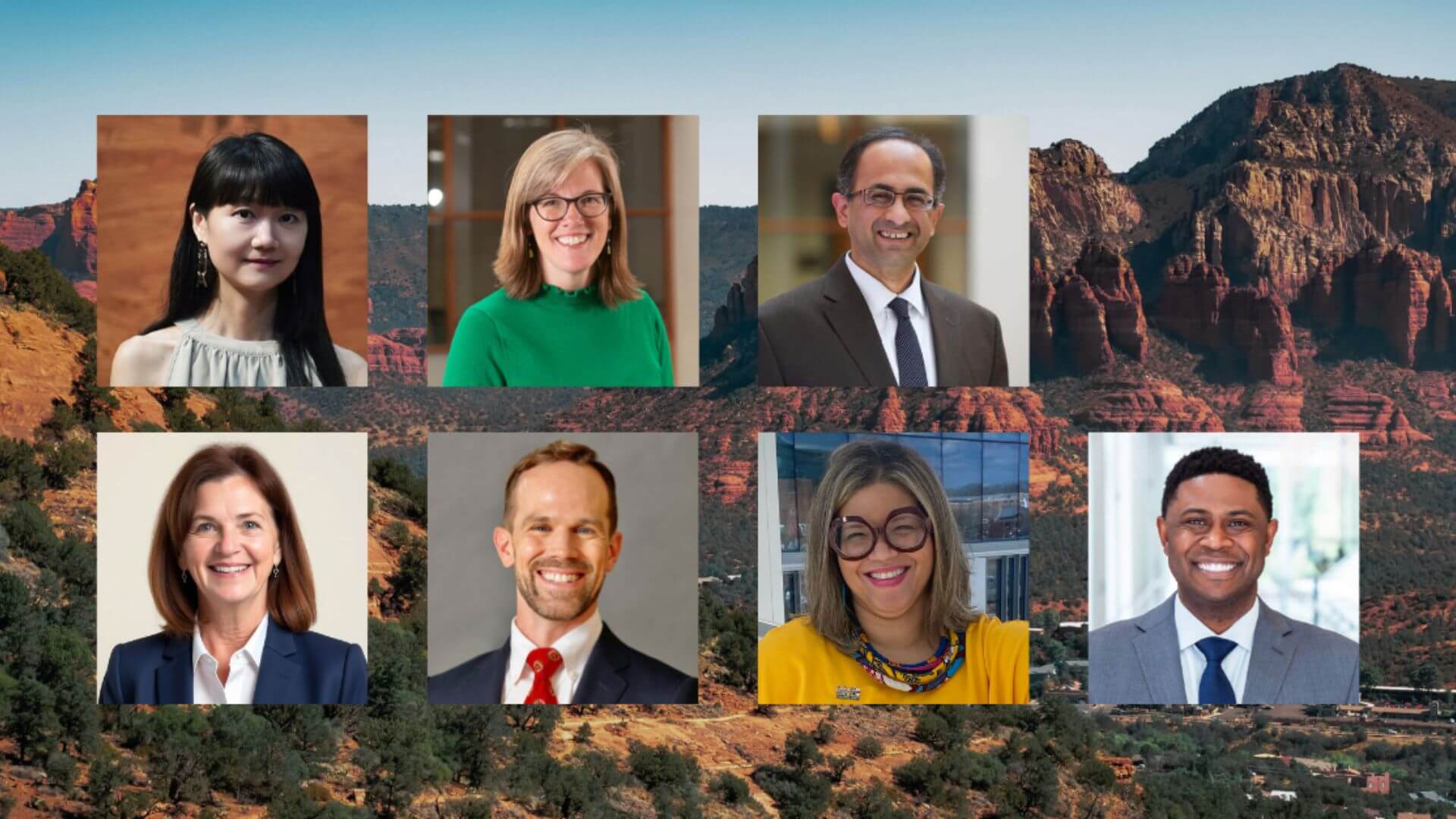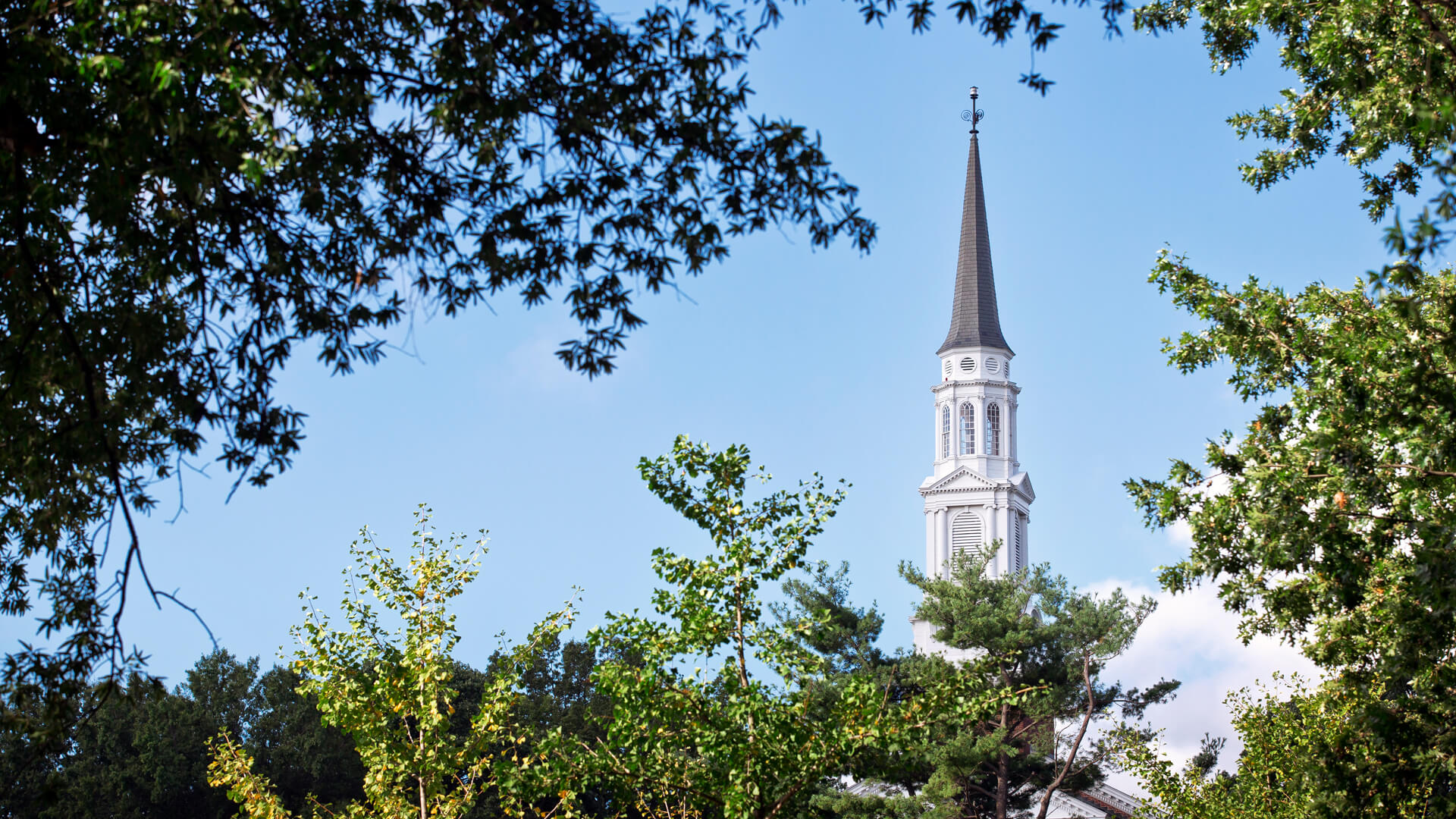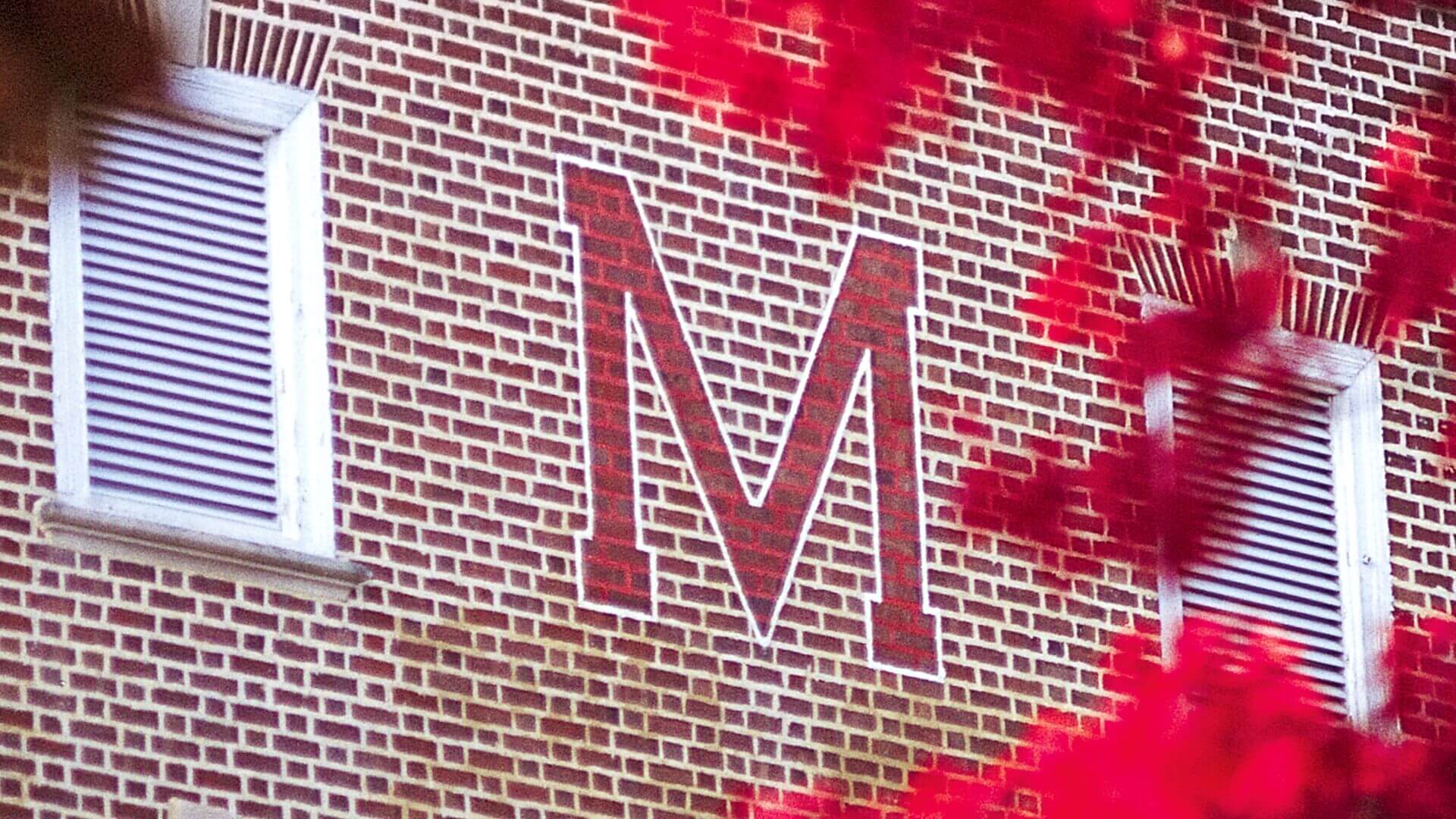
As the nation's first Do Good Campus, The University of Maryland community has come together to support students, address crucial issues, and tackle this unprecedented virus head-on. Our campus - from students, teams, faculty, alums and more - are taking action, ensuring resources are provided to those who need it most.
Despite so much being unknown, we know one thing for sure: our community continues to grow and make positive impact, even in the face of uncertainty.
Do Good Student Teams
Camp Kesem works each summer to provide free summer camps for children ages 6 to 18 who have been impacted by a parent's cancer. Due to cancellations as a result of COVID-19, the Camp Kesem team at UMD is working hard to make sure kids are still given a memorable and meaningful camp experience.
They are planning "Kesem at Home" which will still take place during the planned week of camp, but will instead take place virtually. Organizers will be providing campers activity books, sending them games and supplies, and bring summer camp fun to Zoom.
Learn more here.
Chat Health is a nonprofit organization founded by UMD students with the goal of utilizing novel technologies to improve the accessibility and uptake of preventative health resources for students. Currently, they are working with the University of Maryland to build an SMS-based chatbot to answer questions about healthcare services offered on and off-campus for UMD students.
With the urgency of COVID-19 and the importance of accurate information provision, they are now providing resources for users to stay healthy during this pandemic. Their web-platform allows users to access critical information about COVID-19 via Twitter news feeds, Q & A pages, resource documents, and two AI Chatbots which will automatically answer questions relating to diagnosis, testing, prevention, and resources to students affected by COVID-19.
Learn more here
Edullo is a company by students for students to level the education playing field.
During this time of remote learning, they understand that it can be hard for students to keep up with the curriculum and study for the standardized exams coming up (such as AP and IB programs), so they have created a program to help supplement hardworking teachers. Students across the world, from medical schools to MBA programs, have teamed up to bring you FREE virtual “office hours”. Live streams will be on discord over a variety of topics and times.
Learn more here
La Voz Unida is an independent student-run newspaper dedicated to covering both the Latinx community on the University of Maryland-College Park campus, and broader issues that affect the Latinx community nationwide.
During this unprecedented time, they are featuring coronavirus related stories on their inclusive newsite.
Learn more here.
FacemaskDC.com is a dynamic online platform created by Do Good student Saba Tshibaka to easily connect people that need masks to small businesses and individual donors providing them in the DC area. Both mask makers and people in need are able to easily connect on a virtual map, ensuring those who need masks are able to receive them.
Learn more and explore the map here.
Pawsible Inc. assists volunteer raisers of future assistance dogs. These volunteers care for and train puppies for just over a year, during which they are responsible for costs of dog food, vet bills, and other necessary supplies. Pawsible was created to assist puppy raisers ease the financial burden of puppy raising. Currently, their priority is assisting raisers who are facing financial hardships due to COVID-19 and are struggling to afford necessities such as dog food or vet bills.
As a result of the virus, Pawsible has seen a dramatic increase in emergency applications and requests for help. The Do Good Institute is coaching them on fundraising and matching up to $1,000 of funds to support puppy raisers during this difficult time.
Learn more here.
UMD student Saba Tshibaka, founder of Rendered Inc., a social impact business that raises awareness about the environmental impact of the apparel industry and runs a thrift clothing business, is posting on their blog about coronavirus impacts on the fashion industry and creating a #CleanYourCloset challenge as a positive activity to do while staying home.
Rendered Inc. is also now producing face masks and DIY mask kits for people who would like to make their own, as well as distributing masks to essential workers in Washington DC.
Learn more here.
ROOTS Africa is raising funds to support fragile communities in Uganda and Liberia to help flatten the curve. Founded by current TIAA Nonprofit Leadership Fellow Cedric Nwafor, ROOTS connects UMD students and students at Universities in multiple African nations for the creation of collaborative development solutions for agricultural communities.
In response to COVID-19, ROOTS interviewed stakeholders and determined that $20 USD could keep a Ugandan or Liberian family at home for a month, with all their essential needs. The group is now focused on raising at least $10,000 for farmers and communities, supporting at least 500 families. ROOTS has been awarded a seed grant from DGI and an additional $2,500 in matching funds for this campaign and is receiving coaching support.
Learn more here.
Do Good team Terp Thon raised $5,000 for the National Children's Hospital's COVID-19 Emergency Action Fund with the Institute matching $2,000.
National Children's Emergency Action Fund works to protect children by screening patients with symptoms in an urgent response tent outside the hospital, maintains the hospital's supply of personal protective equipment, and delivers care to those who need it most by expanding telemedicine options for families. The fund also supports providers by addressing personal needs such as child care and transportation, ensuring healthcare workers can remain focused on delivering the best possible care.
Learn more here.
United2Heal (U2H) is a 501(c)(3) nonprofit organization that collects excess medical supplies from local hospitals and clinics and ships them to countries in need.
With COVID-19 changing the ability to work with hospitals, group members have temporarily shifted and are sewing homemade face masks to donate to Anne Arundel Medical Center, whom they are working closely with.
Learn more here.
Do Good Alumni
DMV Fighting COVID is an initiative led by alum Hobie Cohen and his wife Alicia Cohen. Together, they are 3D printing face shields to donate to frontline workers.
To date they have donated over 4,300 face shields to eight healthcare partners, raised over $10,000 through a Go Fund Me campaign, and recruited more than 20 volunteers to help them print, package, and distribute the PPE.
The Do Good Institute has partnered with them and provided a $2,500 grant to help scale their operations.
Learn more here.
UMD alum and Scale Your Impact Member Anthoni Sartori is the founder of Evolving Minds, a nonprofit empowering youth to create a culture of community, advocacy, resilience, and empowerment.
During this difficult time, Evolving Minds is hosting a weekly mindfulness Facebook livestream Thursdays at 7pm @ourevolvingminds. They are also encouraging people to partake in their social media #MayWeBeKind challenge.
Learn more here.
The Food Recovery Network is dedicated to making food recovery the norm, not the exception, and the pandemic has not swayed them from this goal. In the wake of COVID-19 they have partnered with even more corporations and event venues to recover unused food and deliver it to those who need it most.
Working with chapters across the country, the Food Recovery Network is hosting virtual summits where student leaders can create action plans for continuing to grow the food recovery movement from home.
Learn more about their work here.
Alum Kevin Leary is working for the Fund for Education Excellence, which created the Emergency School Closure Family Support Fund to provide vital resources to students and families during this time of school closure.
Learn more here.
UMD alumnus & Do Good Challenge Finalist Evan Lutz, founder and CEO of Hungry Harvest, is providing a delivery service for groceries while also giving back.
Evan's company, Hungry Harvest has partnered with UMD's Medical System and has provided almost 4,800 pounds of food for distribution to 3,900 families as well as providing 620 Emergency Produce Boxes to four schools and two churches in the Baltimore Area.
Learn more here.
The Do Good Institute is consulting with Perfect Strangers, a national non-profit initiative that formed in response to COVID-19 to offer delivery of groceries, prescriptions, and other general errands for the elderly, immunocompromised, or otherwise at-risk individuals.
On April 29th, Perfect Strangers launched is services in Philadelphia, Boston, Washington D.C. and the Greater San Francisco Bay Area, and will continue to expand into other cities across the U.S. throughout May. Perfect Strangers is a national effort that builds on the team's efforts at the top of the pandemic founding a New York City movement that galvanized 10,000 volunteers, completed 2,000+ deliveries. Their efforts have been covered in Good Morning America, Axios, Boston Business Journal, and SFGate.
Do Good alum Laura Griffin is leading their D.C. initiative.'
Learn more here.
The current COVID-19 pandemic has had unprecedented impact on the disability community. Quillo is providing accessible information via video to those with disabilities, their families and those who support them.
Quillo is a technology company that uses principles of micro-learning and positive psychology to engage, inspire, and educate people who provide direct support to individuals with intellectual and developmental disabilities. Their innovative communication platform uses a mobile app to improve outcomes, reduce turnover, and strengthen provider organization’s culture by engaging, inspiring, and educating users.
The Do Good Institute is providing $1,000 to Quillo to support their COVID-19 video efforts.
Learn more here.
Route 1 Mask Match is a community organization working to recruit sewers in the Route 1 Corridor of Maryland to sew and distribute masks to vulnerable populations in the 4 square mile region between Mount Rainer and Greenbelt.
Route 1 Mask Match is providing masks to folks with pre-existing conditions, essential workers and folks over 60 and their caretakers. So far, they have have delivered over 2,000 masks to vulnerable neighbors in the community.
Learn more here.
The Cal Ripken, Sr. Foundation helps to build character and teach critical life lessons to at-risk young people living in America’s most distressed communities. Now more than ever, support is needed to help those that are struggling due to COVID-19. The Foundation has partnered with Feeding America in a special fundraising campaign called Strike Out Hunger where $1 means 10 meals distributed.
A substantial donation has been made in honor of UMD alum, Mark Butler, who was chairman of the Ripken Foundation board until his passing last December. The donation will go towards providing meals and other services for those struggling with food insecurity across the country.
Learn more here.
UMD alumna & Scale Your Impact member Amy Neugebauer, founder of The Giving Square is creating online content to help kids feel like civic actors. Research and The Giving Square's direct experience tells us that more than 50 percent of kids don't feel valuable in their communities.
Without the social structure of school, many are likely feeling even less connected. The Giving Square is responding with digital content that helps kids gain control through easy ways to support their community. See bingo card example.
Learn more here.
Do Good Campus Impact
The University of Maryland Campus Pantry’s mission is to alleviate food insecurity among UMD-College Park students, faculty and staff by providing emergency food to University of Maryland College Park students, faculty, and staff in need.
During this crisis, they have increased their hours of operation to provide more food to those who need it most.
Learn more here.
In response to the novel coronavirus pandemic (COVID-19), researchers at the University of Maryland's A. James Clark School of Engineering are working tirelessly to create solutions and pool resources in efforts to minimize the spread of the disease, provide critical aid to health care workers and their patients, and monitor the impact of social distancing and travel restrictions.
Learn more here.
The UMD Student Crisis Fund is currently providing emergency funds to UMD students who are experiencing unexpected financial hardship. Over the past few weeks they have distributed over $500,000 to those in need, but there are still more requests that haven't been filled.
The Fund helps UMD students discover the very essence of community - not only to spur one another on during ordinary times, but to lift up their fellow struggling student during extraordinary times of crisis.
Learn more here.
Thanks to our passionate and dedicated supporters - including The Rothschild Foundations, CTIA Wireless Foundation, The Neilom Foundation, The Richard E. & Nancy P. Marriott Foundation, and other generous donors - we were able to offer funding and resources available to help you help others, now.
Stay tuned for more opportunities to engage in the future!
Are you doing something that you would like to be featured? Let us know! We want to hear what Terps are doing to change the world.
COVID-19 Do Good Resource Hub COVID-19 Impact on Spring Programs



